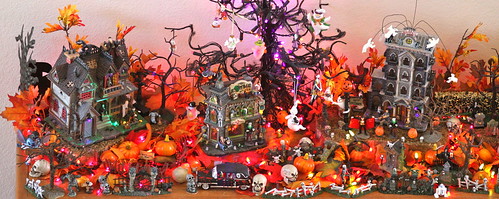This Thanksgiving, celebrate Native leader Samson Occom
Thanksgiving #Thanksgiving

Every year as Thanksgiving approaches, Indigenous and non-Indigenous Americans alike often ask: How should we understand the history of this half-spurious holiday? Without doubt, Thanksgiving is a folk tradition concocted by settlers to whitewash colonial genocide. It is also a commemoration of the Wampanoag tribe’s agency in its diplomatic dealings with English newcomers. And a religious ceremony with deep Biblical roots. It’s probably healthy to retell these intertwined histories every year. But in 2023, why not do something different? Let’s celebrate the 300th birthday of Samson Occom, one of the most important Indigenous leaders you’ve quite possibly never heard of, from the land the Pilgrims called New England.
Occom has long been renowned among the Native peoples of the Northeastern seaboard, including a broad diaspora of descendants and kin who today live all over the world. Occom was a prominent religious and political leader among three Northeast Native communities in particular: the Mohegan nation, where he was born and raised; the Montauketts of eastern Long Island, where he taught school for a dozen years and eventually met his wife; and the Brothertown tribe, a confederated nation of coastal Indigenous families who relocated to upstate New York in the 1780s.
Occom’s work on behalf of Indigenous sovereignty in the 18th century — the so-called “Founding Era” of the United States — should be of great interest to anyone who aspires to decolonize their Thanksgiving or their understanding of national identity more broadly. Occom came of age when the British were the dominant imperial power in the Northeast. His kin died fighting alongside the British in the Seven Years’ War. But by the time of Occom’s death in 1792, the United States was rapidly emerging as an imperial power in its own right. The migration of coastal Algonquian families to Brothertown, which Occom helped lead, happened after the Revolutionary War. By then, Connecticut Colony, which had designs on Mohegan land since the early 1700s, had morphed into the state of Connecticut. Offices held by loyalists were now filled by US patriots. But what did that matter to Native people?
Get The Primary Source
Globe Opinion’s weekly take on politics, delivered every Wednesday.
In raising this question, Occom was arguably the first American intellectual from any background to grasp that the so-called “colonial period” of American history did not end with the Declaration of Independence. For the Indigenous peoples of the Northeast, the founding of the US republic amounted to little more than an administrative reshuffling. The colonists said it was about freedom but there was never any plan to extend the blessings of liberty to Native people. Colonialism lived on, but so too — thanks in part to leaders like Occom — did self-determining Native nations whose people insisted on governing themselves in their own ways. As Occom wrote in 1783, “Indians are neither Whigs nor Tories.”
Occom’s diagnosis of the United States as a colonial power remains deeply relevant today. Along with his Black friends and contemporaries Phillis Wheatley and Lemuel Haynes, Occom belonged to the first generation of anti-imperialist American intellectuals of color. Like Wheatley and Haynes, Occom left behind a remarkable body of writings that speak on behalf of human liberation from a non-white-supremacist point of view, a perspective excluded from the founding documents of the United States
So this Thanksgiving, why not raise a glass to Occom on his 300th birthday? While you’re at it, consider visiting the homelands of the Mohegan tribe, or writing a letter to your congressional representative advocating the restoration of Brothertown as a federally-recognized Indigenous nation.
And one of the best ways to give thanks is to give things back — something Occom knew a lot about.
Ryan Carr teaches English and American Studies at Columbia University and is author of Samson Occom: Radical Hospitality in the Native Northeast.”